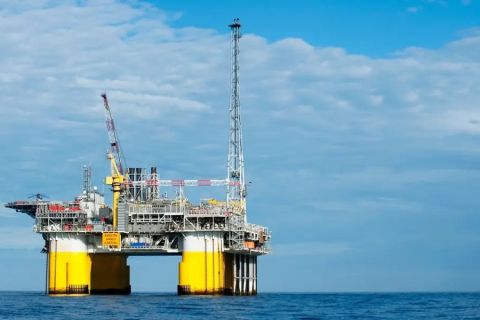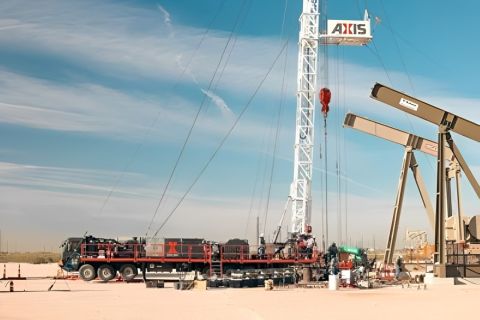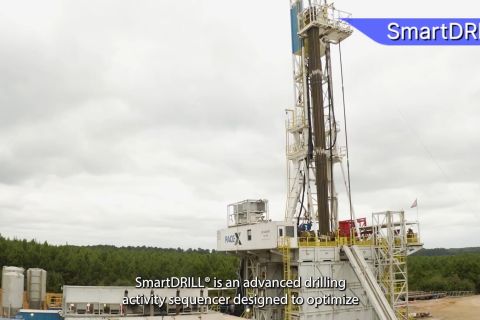When working in a sand-control environment, minimizing high operating costs and risks becomes imperative. When Baker Hughes introduced its multi-zone, single-trip (MST) system, companies were growing tired of running stack-pack operations that resulted in an insurmountable amount of time lost while tripping in and out of the well to complete each zone. The MST system allows single-trip gravel- or frac-packed completions across multiple production intervals, which can effectively reduce nonproductive time (NPT).
The tool won the completions category of Hart Energy’s 2008 Meritorious Awards for Engineering Innovation. “Clients demanded a reliable, one-trip completion system that would work efficiently and safely in all environments while providing effective sand control,” Andres Guerra, applications engineer with Baker Hughes’ lower completions division, said.
Along with reducing completion time, the system also can reduce cost by completing multiple zones in a single trip. Areas in deep water often have higher rig rates and longer tripping times, translating into the need for wells to produce prolifically or technologies that allow efficient, reliable completions in less time.
The system also includes several other features and benefits. “Among these are the ability to treat multiple pay zones nonsequentially, the option to select or commingle production to maximize hydrocarbon recovery, accurate placement of fracture treatments with reliable tool positioning during pumping operations, and a large flow area,” said Jamie Imhoff, sand control engineering manager for Baker Hughes.
Since its introduction, the system has been run more than 50 times and has completed about 200 zones. The company recently applied the system to the deepest fracpacked well on record – with a depth of 8,103 m (26,585 ft) – which also proved to be the deepest application of the system in the Gulf of Mexico. “The operation did not incur any lost-time incidents or NPT related to the deployment and operation of the MST system,” Guerra said. “In terms of operational savings, the customer saved several million dollars in rig rate reductions alone.”
The company has since worked to upgrade the system to accommodate future challenges, particularly in deep-water completions. “The system now has the ability to integrate intelligent production technology, which allows for optimum well control,” Imhoff said. “The application consists of a feed-through production string for hydraulic and electric lines to reach monitoring and remote flow control equipment.”
To better address deepwater challenges, the company has upgraded the design to increased pressure ratings and has improved erosion-resistant fracturing port technology. “Computational fluid dynamic models were developed to aid in erosion prediction,” Imhoff said. “Full-scale designs have been thoroughly tested with a high-rate flow loop setup designed to simulate worst-case erosion scenarios.” Resulting designs have been incorporated into the company’s SC-XP gravel-pack and frac-pack system and are being merged into the MST system.
With companies pushing for further developments to the system and changes being implemented, the technology continues to be a game-changer in the industry. “The new deepwater challenges are pushing the system to higher ratings,” Guerra said. “The intent right now is to take the system beyond its current capabilities to comply with the operator’s challenging opportunities. Furthermore, Baker Hughes is looking into refining the MST system to work in multizone openhole completions.”
Recommended Reading
Tech Trends: AI Increasing Data Center Demand for Energy
2024-04-16 - In this month’s Tech Trends, new technologies equipped with artificial intelligence take the forefront, as they assist with safety and seismic fault detection. Also, independent contractor Stena Drilling begins upgrades for their Evolution drillship.
AI Advancing Underwater, Reducing Human Risk
2024-03-25 - Experts at CERAWeek by S&P Global detail the changes AI has made in the subsea robotics space while reducing the amount of human effort and safety hazards offshore.
2023-2025 Subsea Tieback Round-Up
2024-02-06 - Here's a look at subsea tieback projects across the globe. The first in a two-part series, this report highlights some of the subsea tiebacks scheduled to be online by 2025.
Axis Energy Deploys Fully Electric Well Service Rig
2024-03-13 - Axis Energy Services’ EPIC RIG has the ability to run on grid power for reduced emissions and increased fuel flexibility.
Tech Trends: Safety, Speed, Savings: Automation is Transforming Drilling
2024-03-26 - Drilling is getting smarter through automation, delivering efficiency, consistency and reliability.





